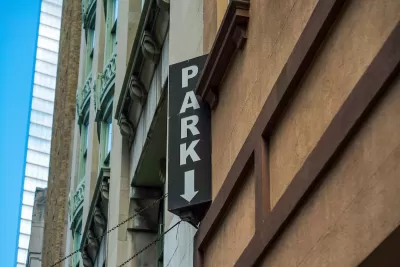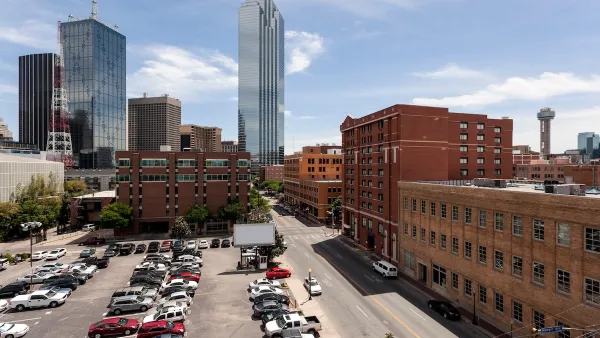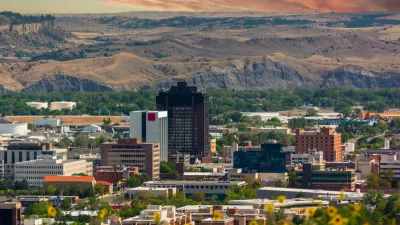Mayor Adams wants to stop requiring off-site parking for new buildings to reduce the costs of construction as part of the ‘City of Yes’ package of zoning reforms.

As part of New York City Mayor Eric Adams’s ambitious package of zoning reforms, the city is proposing eliminating parking requirements for new buildings to reduce construction costs and, subsequently, housing costs. “Adams said that each parking space adds about $67,500 in construction costs,” explains Julianne Cuba in Streetsblog NYC.
According to David McCarty of Alloy Development, “More projects become financeable and more units get built. The only way to address affordability is adding a lot more supply into the market.” Cuba points out that housing costs are largely driven by demand, but construction costs can add to the price of new units. “And so eliminating the requirement will help reduce that burden by removing the extra cost so that housing for people — rather than cars — can be built, experts say.”
The proposed zoning change will have to pass through the city’s Uniform Land Use Review Procedure, with a final vote next fall.
FULL STORY: Analysis: Everyone Agrees — Less Parking Means More Housing

Montreal Mall to Become 6,000 Housing Units
Place Versailles will be transformed into a mixed-use complex over the next 25 years.

Planetizen Federal Action Tracker
A weekly monitor of how Trump’s orders and actions are impacting planners and planning in America.

DARTSpace Platform Streamlines Dallas TOD Application Process
The Dallas transit agency hopes a shorter permitting timeline will boost transit-oriented development around rail stations.

Study: 4% of Truckers Lack a Valid Commercial License
Over 56% of inspected trucks had other violations.

Chicago Judge Orders Thousands of Accessible Ped Signals
Only 3% of the city's crossing signals are currently accessible to blind pedestrians.

Philadelphia Swaps Car Lanes for Bikeways in Unanimous Vote
The project will transform one of the handful of streets responsible for 80% of the city’s major crashes.
Urban Design for Planners 1: Software Tools
This six-course series explores essential urban design concepts using open source software and equips planners with the tools they need to participate fully in the urban design process.
Planning for Universal Design
Learn the tools for implementing Universal Design in planning regulations.
City of Mt Shasta
City of Camden Redevelopment Agency
City of Astoria
Transportation Research & Education Center (TREC) at Portland State University
US High Speed Rail Association
City of Camden Redevelopment Agency
Municipality of Princeton (NJ)





























